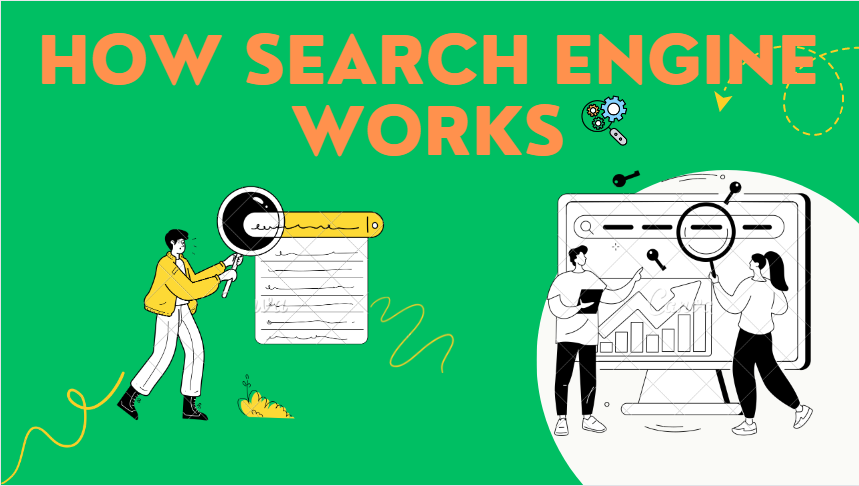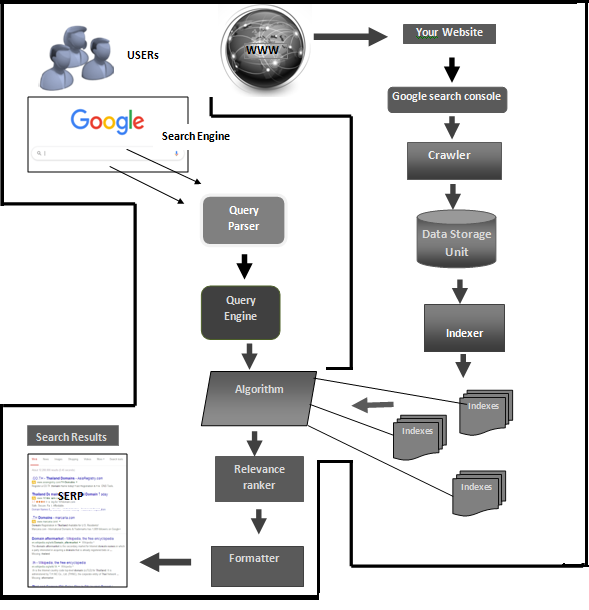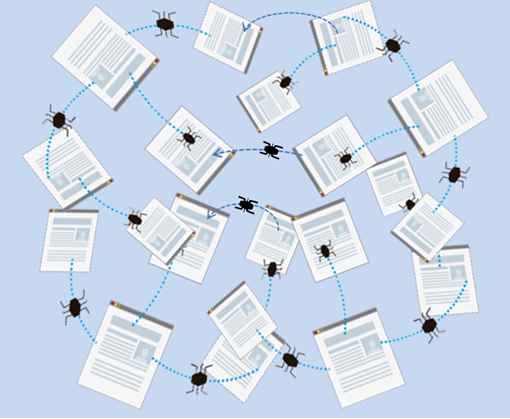
How Search Engine Works
How search engine works
Search means to find information from the web and engine means machine or software. A search engine is a machine or software system that allows the internet user to search for information from the World Wide Web.
There are a large number of search engines exist on the web. They are Google, Yahoo, Bing, DuckDuckGo, ask.com, Yandex, and so on.
Let’s see now how the search engine works.
When you make a query to a search engine using a keyword for particular information, the search engine does the following steps:
- Accept your query
- Analyze the query
- Figure out the word order
- Look up the relevant content under the user keyword in its database
- Relevancy and ranking are determined by over 200 factors
- Make results by taking into account everything it knows about your query
- Rank the results by doing a strict judgment to keep the content’s placement in SERP.
- Send the results
Search Engine performs the following functions to display accurate answer to the search query:
- Web Crawling
- Indexing
- Ranking
- Displaying Results
- Refining and Improving Rank
Search engine performs these functions by using two components.
They are Crawler and Algorithm.
Crawler: The crawler is an internet bot or web robot that runs automated tasks over the internet. In fact, it is a software application that moves one page to another page through the link for the purpose of web indexing.
Algorithm: The word “algorithm” refers to the step-by-step logic-based procedure for solving a particular problem. The search engine uses algorithms to rank and return the relevant results under a keyword of a search query. Google algorithms are updated often. This is done in many ways for only how to find the most relevant and accurate web pages for particular keywords.
Here is a flow chart on how a search engine works

How search engine works
Crawlers (sometimes called spiders or robots) are constantly scanning the web to collect information from the sites or pages while they are dropped on the web. When it collects every page it also finds the relevance of the keyword.
Thus, the crawlers crawl all the relevant pages under keywords by following the links from one page to other pages and taking a copy of the sites to make an index. It is the prerequisite step to showing up results in the search engine result pages (SERP). Thus, the web crawler crawls billions of websites and makes an index of the relevant content.

Search engine collects the pages under a keyword that contains the same keyword in the URL, in the title of the site, in the Meta description, in the body of the content, in the heading tag, and so on.
Thousands of machines process a large quantity of information very quickly.
From the index of the content, the crawler makes ranking of each web page. To find the most relevant content and to show more useful results of a search query in a fraction of a second, Search Engine like Google use its algorithms. Different algorithms work different jobs. Ranking algorithms look at hundreds of ranking factors to prepare a search result that helps the users to get what they are actually looking for.
Each year, Google releases hundreds or thousands of algorithm updates that affect search results in significant ways. Many lost their rankings and many experiences improved in rankings.
Five major algorithm updates are Panda, Penguin, Hummingbird, Pigeon, and Fred.
Having completed all the mechanisms of searches, Search Engine Result Pages (SERP) are displayed by search engines in response to a query by a user.
The results are of two types. They are organic search results and sponsored search results.
SERP (Search Engine Result Pages) includes the following terms in their pages
- Sponsored results or Paid advertisements
- Organic result
- Featured snippets
- People Also Ask boxes
- Local (map) pack
- Knowledge panel
Sponsored results: It is a paid search result listing. In this case, search engine advertising guarantees that within a day or less, the site will appear at the top of the results for the target keyword terms. In this case search engine is committed to displaying the paid result on the top of the SERP.
Organic results: Organic results (SERP listing) are generated by organic SEO. In this case, the search engine considers hundreds of metrics to determine the relevance of the searched term. It is a natural listing. Search engine algorithms test judge the relevancy of the web pages for a search query and whether it will go to the listing or not. Algorithms consider the factors like content quality, the trustworthiness of WebPages, backlinks; social media, etc to make the result pages that contain organic 10 listings per page.
Featured snippets: In order to enhance the search experience, Google has been adding more information to search results. The Featured Snippets is a format of results that provides direct answers to the questions relevant to the search query. There are different types of featured snippet like text snippets, video snippets, list,s and table snippets.
People Also Ask boxes: “People also ask” box is a feature that provides quick-answer boxes. It contains a set of questions and answers related to the original search query.
Local (map) pack: In the case of local search, Google shows a map among the organic search results which is called the Local (map) pack. Google shows three local business listings that might answer the local search queries.
Knowledge panel: Knowledge panels are information boxes that appear on Google’s search engine result page in response to the search for entities like places, people, organizations, and things.
Conclusion:
A search engine is software on the web that shows answers in response to the search query of the users. Here the foremost job of a search engine is to show the exact answer to the search query. It is very difficult to find out the relevant answers from billions of sites on the web. For ensuring exact and rich answer search engine updates its algorithms thousands of times a year. Thus, all the search engines are continuing their search works and showing answers to the search to the users. What do you think about ‘how the search engine works’ please comment below.
Related :
